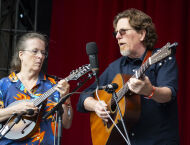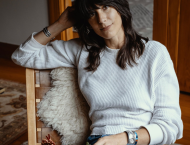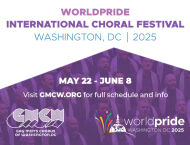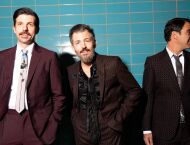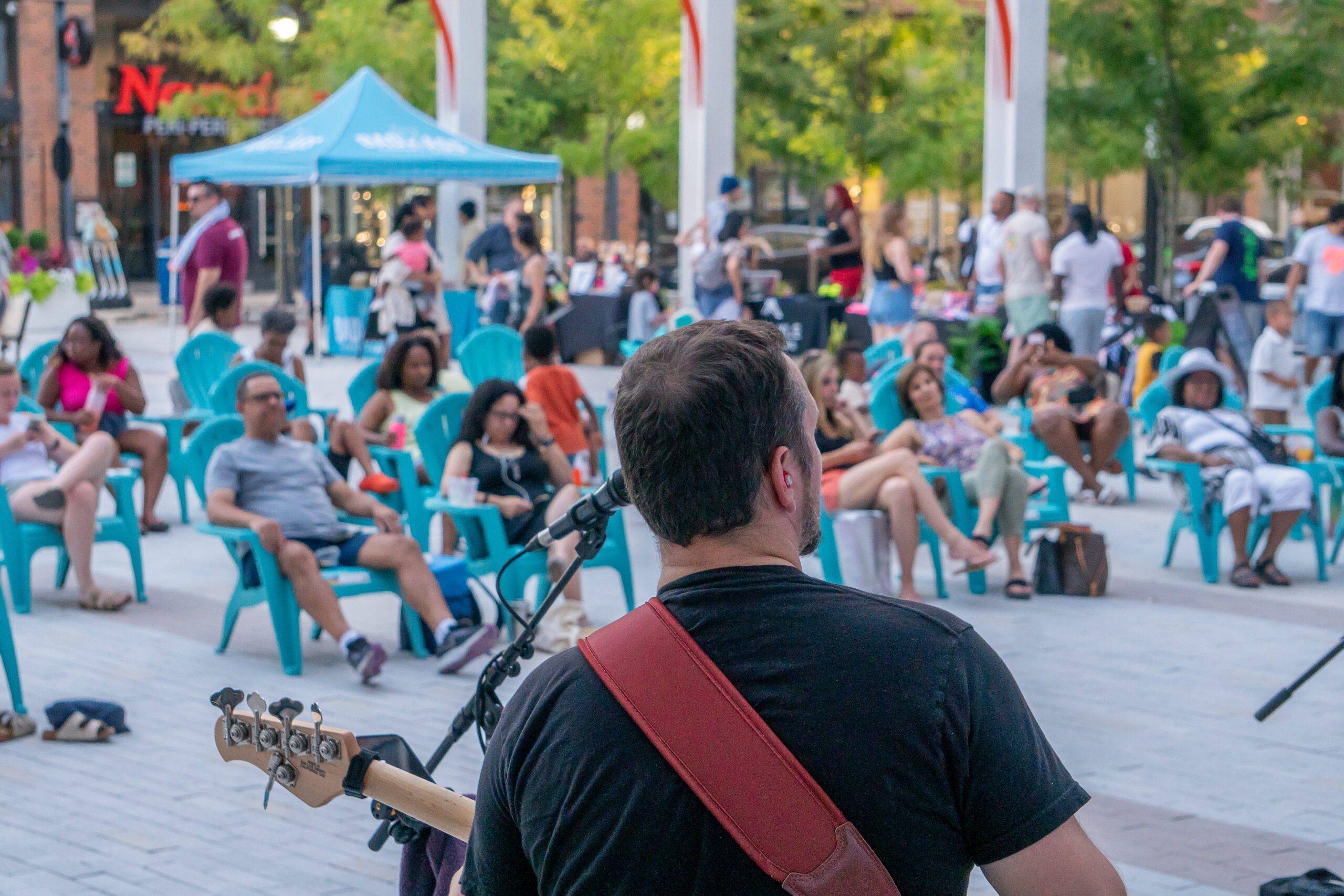Music
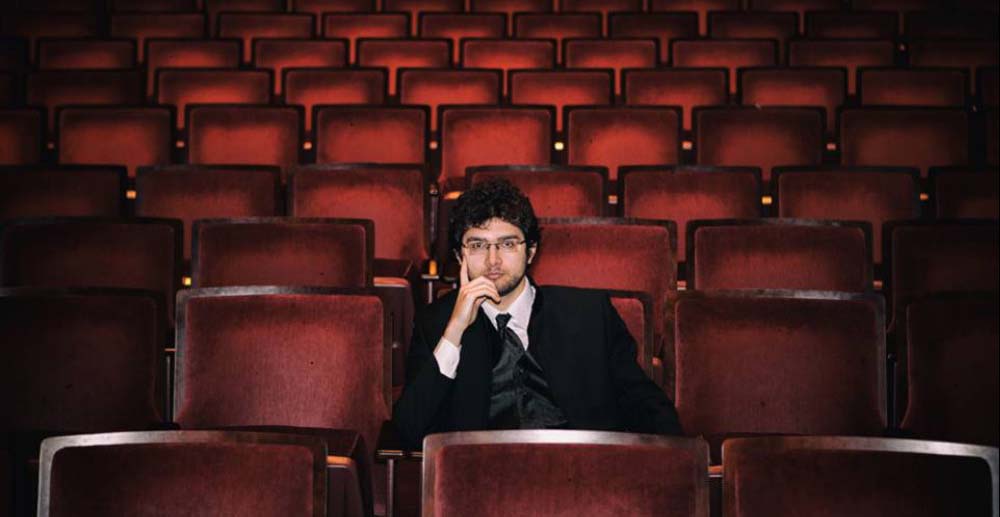 Photo: Sergei Narinsky
Photo: Sergei Narinsky
Roman Rabinovich Returns to the Kennedy Center
March 20, 2018 @ 12:00am
“Musicians are like gypsies, always on the road,” concert pianist Roman Rabinovich writes me. As we chat, he’s on his way to Germany to play a recital of composer Joseph Haydn‘s music. This Saturday, he’s going to play at the Kennedy Center. His upcoming program will also include Haydn, as well as Sergei Rachmaninoff, Frédéric Chopin and an original composition.
Rabinovich was born in Uzbekistan but grew up in Israel and later studied at Julliard. Lately he’s become known for his “Haydn Marathon” performances, but he has also referred to legendary concert pianist Sir András Schiff as his “musical guru.” He is also an accomplished visual artist who often illustrates his own programs.
Rabinovich has played the Kennedy Center before, but at the time he played the Millennium Stage for the free concert series. Presented by Washington Performing Arts, he returns to the Kennedy Center, this time to play the Terrace Theater. It’s obvious the 24-year old is ascending and in our correspondence I ask him about what the life of a concert pianist is like, his other work as an artist and how he balances his life as a concert pianist with composition.
“It’s not an easy life,” he says, “but I wouldn’t trade it for anything else.”
On Tap: I know from talking with other classical musicians that you spend a lot of time flying, so how do you pass the time? Gianandrea Noseda of the NSO told me he likes to read his scores, but I understand that you sketch. Do you find yourself sketching or reading scores more while you fly?
Roman Rabinovich: I usually get a lot of work done on the plane. I either compose, or draw or read. Sometimes it is important to just sleep, especially if I have to play shortly after I land.
OT: How do you balance all the travel time with your practice schedule? which I understand to be rigorous for pianists.
RR: I have to be disciplined about devoting a few hours every day to practicing no matter what. I always ask to block four to six hours before concerts so I get to know the piano and the acoustics of the hall as much as I can. I also do a lot of mental practicing without the piano.
OT: What does a typical practice day look like?
RR: Usually the first thing I do after I wake up in the morning is go to the piano and improvise for a few minutes, to let the creative juices out. After that, I practice my repertoire for a few hours. Pianists usually have to prepare a lot of repertoire so one has to compartmentalize: two hours for recital for this week, one hour for concerto for next week, another two hours for chamber music for next month and new repertoire for next year. Then it is important to get outside and take a walk at some point before the sunset.
OT: How do you balance practice with composing?
RR: I always compose in my head – when I walk or wait in line at the airport; it never stops. Sometimes it can be quite annoying, because I don’t have any control over it, and it just keeps going. Sometimes it’s difficult to fall asleep. Writing it down is the final step.
OT: Who are composers you would situate in the same sonic-space as your own compositions?
RR: I’m not sure I can answer this question objectively. I can tell you who my musical heroes are: Bach, Beethoven, Schubert, Schumann, Rachmaninov, Bartok, Ligeti, Kurtag, Keith Jarrett, Zakir Hussain and Radiohead. The musical material, however, has to come from the heart, essentially from the subconscious.
OT: Tell me about your piece “Memory Box.”
RR: “Memory Box” is a suite of six contrasting miniatures. I wanted to explore the world of dreams and fantasies. The seed for the piece was a series of paintings I did with the same title. The inspirations for the movements span from Stefan Zweig to ancient ruins.
OT: Tell me about the Kennedy Center concert program otherwise. What are you most looking forward to playing and why?
RR: Choosing a recital program is one of the the most thrilling and challenging tasks. It is like a visit card. One can get a sense of who the artist is before they play anything, just by looking at the choice of their program. For my Kennedy Center debut I chose pieces I particularly love. I’m starting the program with a rarely played sonata by Haydn, a composer who I adore, and whose music I’ve been extensively exploring in the last two years. I’ll continue with my piece “Memory Box,” followed by my favorite Rachmaninoff piece, “Variations on a Theme by Corelli.” It is a late piece that Rachmaninov wrote after he left Russia and one feels a tremendous sense of nostalgia and longing in it. It is extremely tender and bitter and full of beauty. I will conclude the program with Chopin’s Four Ballades in the second half.
OT: How does your drawing figure into your day? How do you balance it with everything else?
RR: I’ve always loved drawing. Ever since I was a little kid I could spend many hours with a notebook and a markers, completely consumed by shapes and colors. I felt that I was creating my own emotional world, which I was in control of. I was always fascinated by the physicality of paints, canvases and brushes. And by the fact that it was permanent, as opposed to music which is so transient. You play a note, and it’s gone.
OT: Who are some inspirations for your art?
RR: Van Eyck, Rembrandt, Titian, Hogarth, Van Gogh, Cézanne, Picasso, Hockney, Richter, Kiefer.
OT: Do you sell your art? Where do you hope it will go?
RR: I’ve sold some paintings over the years. I’d like to find a synthesis between visual art and music. In trying to achieve this I recently made a short animation, (together with Adam McRae), about my imaginary encounters with Joseph Haydn which features one of his sonatas.
OT: What else do you have coming up? Are you preparing to add some new pieces to your repertoire? Are you working on any new compositions?
RR: I’m about to play the complete Haydn Sonatas at the Bath Festival in the UK in May. It will be 45 sonatas in 10 concerts over a two-week period. Besides this I’m constantly working on new repertoire. Piano repertoire is immense and I have broad interests, so it keeps me busy. For next season I’m preparing Schubert’s C minor Sonata, Ligeti’s “Musica Ricercata,” Bach’s Partitas and Bernstein’s “Age of Anxiety,” among other pieces. As to my own music, I’m currently writing a violin sonata.
For more on Rabinovich check out his website or his YouTube channel. The concert is Saturday, March 24 at 2 p.m. Tickets are $45. For tickets visit www.washingtonperformingarts.org
The John F. Kennedy Center for the Performing Arts: 2700 F St. NW, DC; 202-467-4600; www.kennedy-center.org


